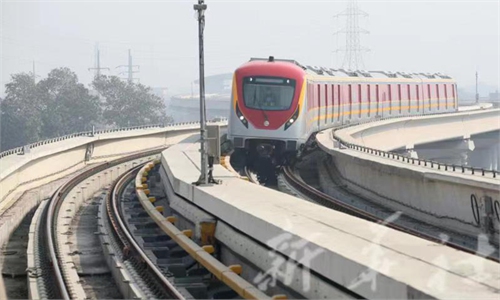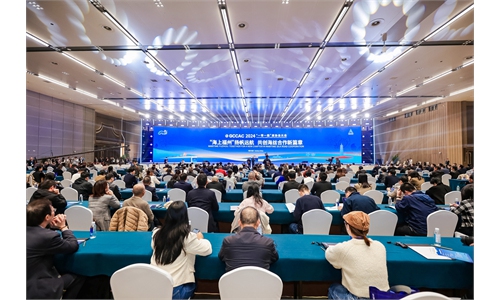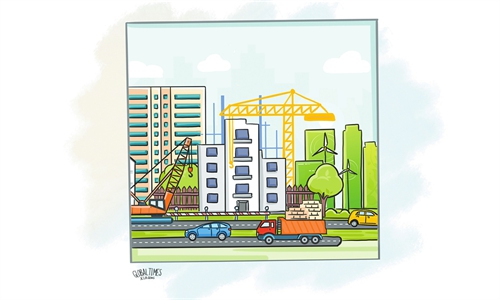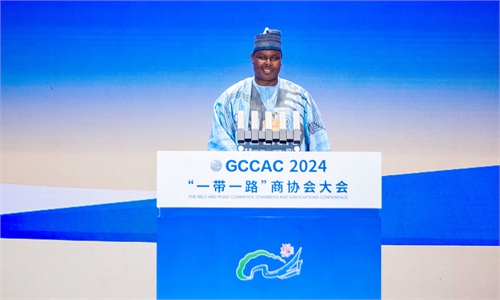In 2025, a wide range of industrial fields like green energy, AI and more will be covered, assisting growth of Global South: experts
Deepening cooperation under BRI framework
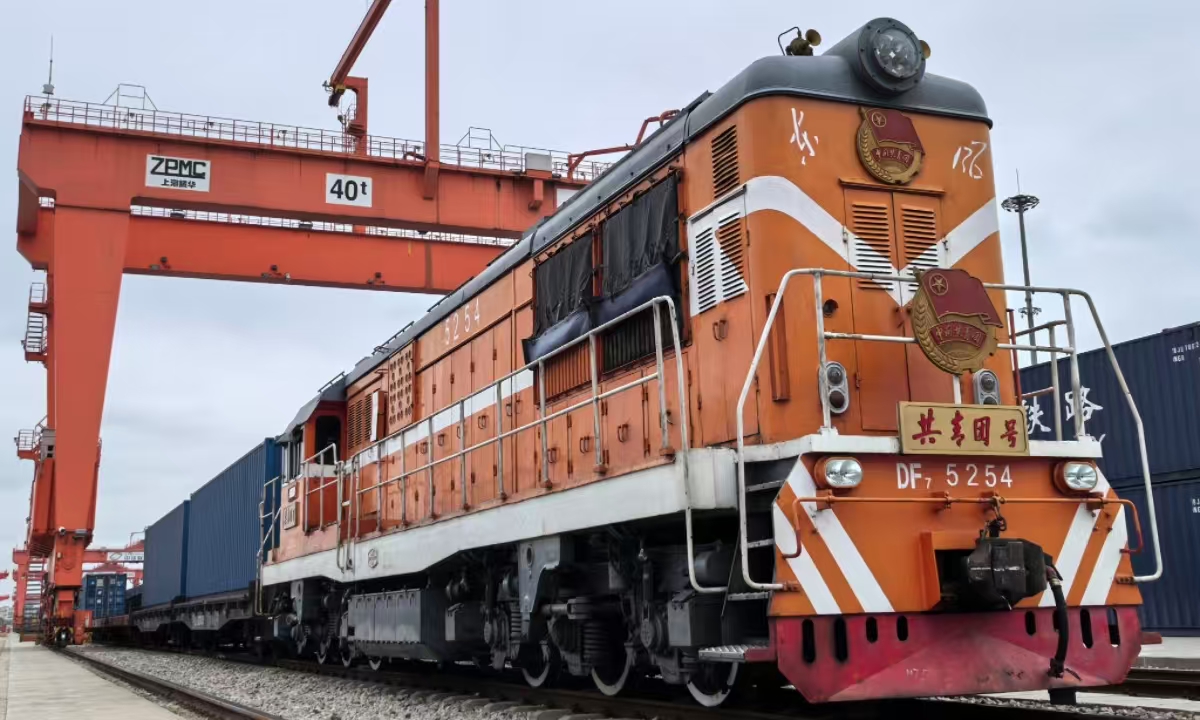
A view of a China-Europe freight train in Wuhan, Central China's Hubei Province Photo: Zhang Yiyi/GT
The fourth symposium on Belt and Road construction work was held in Beijing in early December. Chinese President Xi Jinping stressed comprehensively advancing high-quality cooperation under the Belt and Road Initiative (BRI).
The symposium is of great importance as it provides a window to summarize the BRI development over the last 11 years, while also charting out a new course for advancing high-quality BRI cooperation in 2025, scholars said.
"This year's symposium placed greater emphasis on strengthening mechanisms for the high-quality Belt and Road cooperation, with a particular focus on connectivity. Connectivity extends beyond the 'hard connectivity' of infrastructure to include the 'soft connectivity' of rules and standards, as well as the 'heart connectivity' that nurtures deeper bond between peoples in partner countries," Maya Majueran, director of Belt and Road Initiative Sri Lanka (BRISL), a Sri Lanka-based organization that specializes in BRI cooperation, told the Global Times on Thursday.
According to Majueran, the symposium also reiterated the importance of building a human community with a shared future, which is a core principle that continues to resonate strongly with the Global South countries. "This vision is one of the key reasons for the Global South's active participation in the BRI," he said.
Yasir Habib Khan, founder and director of Pakistan-based Institute of International Relations and Media Research, told the Global Times the symposium has offered a crucial window to gauge the startling achievement of BRI global cooperation throughout 2024, a pivotal year which marks the 11th anniversary of BRI and the beginning of its second decade voyage.
The initiative was put forth in 2013, and by the end of 2024, the BRI cooperation has "achieved numerous breakthroughs that have significantly benefited the global economy," Khan said, while taking example of the recent inauguration of Chancay Port in Peru, which welcomed its first cargo ship from Taicang Port in Suzhou, East China's Jiangsu Province in November.
On Tuesday, the 100,000th China-Europe freight train arrived in Germany, marking a historic milestone for the flagship BRI connectivity project which was incepted 13 years ago.
"Under the BRI framework, China has collaborated with partner countries to build critical infrastructure such as roads, railways, power plants, and ports, while also funding community-focused projects like hospitals and schools. These efforts reflect China's commitment to high-quality development and its significant contributions to global progress," Majueran said.
So far, China has signed BRI cooperation documents with more than 150 countries and over 30 international organizations, according to the symposium. Data from the Ministry of Commerce showed that by the end of 2023, Chinese companies had established 17,000 overseas enterprises in countries participating in the BRI, with direct investment exceeding $330 billion.
Overcoming challenges
The symposium noted that the world has entered a new period of turbulence and change in recent years. According to foreign scholars, China and other BRI partner countries have joined hands to overcome those challenges and effectively address the impact of geopolitical conflicts.
"Throughout the year, global politics and economics, dominated by unipolar powers, have continued to exert significant pressure on the multilateral free trade system, sparking an undercurrent of 'anti-globalization' in 2024… Despite the evolving context, BRI global cooperation has been carrying out resolutely," Khan noted.
He stressed that in the case of Pakistan, the China-Pakistan Economic Corridor (CPEC), a flagship BRI project, has faced several challenges and terrorist threats this year. However, China's cooperation with Pakistan has remained steadfast and unwavering, not deterred by the obstacles or challenges.
Foreign experts also dismissed certain Western politicians' hype on so-called concerns over debt sustainability, environmental impact, and national security of BRI projects, calling those allegations "groundless."
"It is important to note that China sees all countries, regardless of size, strength, wealth, or development status, as equal members of the international community. And China rejects hegemony and power politics, promoting a world where no nation imposes its will on others," Majueran said.
He stressed that this inclusive and cooperative approach, as exemplified by BRI, has positioned China as a trusted partner in the Global South, fostering win-win solutions and offering an appealing alternative to traditional power dynamics.
Development prospects
During the symposium held in Beijing, Xi also pointed out that the Belt and Road cooperation has entered a new period of high-quality development.
Looking forward, analysts stressed that BRI cooperation will continue the high-quality development course, but with more focus on projects that are "more sustainable, feature long-term partnerships and enhance the economic self-resilience of participating nations."
According to Khan, one of the focal areas will be on promoting technological and artificial intelligence (AI) cooperation. "Since BRI is gaining prestige to enter in 2025 soon, the implementation of the Belt and Road Science, Technology and Innovation Cooperation Action Plan will take a lead as well. And BRI will undoubtedly play a pivotal role in fostering exchanges and dialogue with other countries, driving a global revolution in AI development," he added.
The green economy seems to be another high priority next year. According to one of the eight major steps announced by China last year in support of high-quality Belt and Road cooperation, China will implement the Green Investment Principles for BRI, and provide 100,000 training opportunities for partner countries by 2030.
It is expected that China will deepen cooperation in areas such as green infrastructure, green energy and green transportation, and step up support for the BRI International Green Development Coalition, which was set up in 2023, Khan noted.
The ultimate aim of the BRI's high-quality development is to deliver tangible and meaningful benefits to all participating nations. And to achieve this, the future development of BRI should prioritize high standards, sustainability, and improving lives by enhancing cooperation quality, boosting investment efficiency, ensuring superior supply chain standards, and strengthening development resilience, Majueran said.

